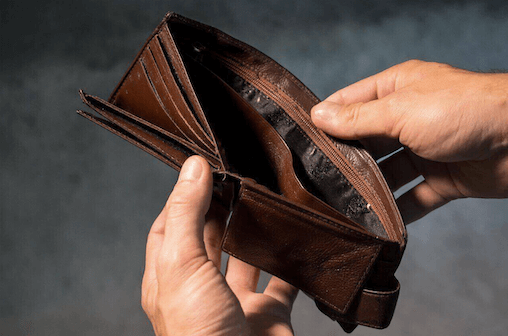In the realm of personal finance, the burden of debt can become overwhelming, leading individuals to explore options for relief. Payday loans, known for their high interest rates and short repayment terms, are a common source of financial strain. This article delves into the relationship between payday loans and Chapter 13 bankruptcy, examining the legal considerations, processes, and implications for those seeking a structured approach to debt resolution.
What Is Chapter 13 Bankruptcy?
Chapter 13 bankruptcy, often referred to as a “wage earner’s plan” or “reorganization bankruptcy,” provides individuals with a structured framework to repay their debts over a period of three to five years. Unlike Chapter 7, which involves liquidation, Chapter 13 allows debtors to retain their assets while adhering to a court-approved repayment plan.
What Is The Treatment Of Payday Loans In Chapter 13?
The treatment of payday loans in Chapter 13 bankruptcy differs from Chapter 7, offering a more structured and potentially favorable approach for both debtors and creditors. In Chapter 13, payday loans are generally treated as unsecured debts. While they do not have the same priority as secured debts like mortgages, they are still subject to the rules governing unsecured debts.
A fundamental aspect of Chapter 13 is the creation of a court-approved repayment plan. This plan outlines how the debtor will repay creditors, including payday loans, over the designated period. The repayment amount is based on the debtor’s disposable income.
Chapter 13 may provide an opportunity to reduce the interest rates on payday loans. The court-approved plan may stipulate a lower interest rate, offering relief to the debtor by decreasing the overall cost of repayment.

What Is The Best Way To Incorporate Payday Loans Into The Repayment Plan?
The process of including payday loans in a Chapter 13 repayment plan involves several steps:
| Listing Debts: | The debtor must provide a comprehensive list of all debts, including payday loans, when filing for Chapter 13 bankruptcy. This list serves as the basis for developing the repayment plan. |
| Determining Disposable Income: | The debtor’s disposable income, calculated by subtracting necessary living expenses from total income, is a key factor in establishing the repayment amount. This amount is then distributed among creditors, including payday loan lenders, according to the court-approved plan. |
| Court Approval: | The proposed repayment plan must be submitted to the bankruptcy court for approval. Creditors, including payday loan lenders, have the opportunity to object to the plan. The court will assess the plan’s feasibility and fairness before approving it. |
| Structured Repayment: | Once approved, the debtor adheres to the structured repayment plan, making regular payments to the bankruptcy trustee, who then distributes funds to creditors. The structured nature of Chapter 13 provides a systematic approach to managing and repaying debts, including payday loans. |
What Are The Advantages Of Including Payday Loans In Chapter 13?
Incorporating payday loans into a Chapter 13 repayment plan offers several advantages for debtors:
Asset Protection
Unlike Chapter 7, Chapter 13 allows debtors to retain their assets. This is particularly advantageous for individuals who wish to safeguard their home, car, or other valuable possessions.
Extended Repayment Period
Chapter 13 provides a more extended repayment period compared to the short-term demands of payday loans. Debtors have the opportunity to spread payments over three to five years, reducing the financial strain associated with immediate repayment.
Reduced Interest And Fees
The court-approved repayment plan may include provisions for reducing the interest rates and fees associated with payday loans. This can result in significant savings for the debtor over the course of the repayment period.
Consolidation of Debts
Chapter 13 allows debtors to consolidate various debts, including payday loans, into a single, manageable payment. This simplifies the repayment process and ensures that all creditors are treated fairly.
Legal Protections
Debtors filing for Chapter 13 benefit from automatic stays, which provide legal protection from creditor actions, including collection efforts and lawsuits. This protection extends to payday loan lenders, offering debtors relief from aggressive collection tactics.
What Are Potential Challenges And Important Considerations?
While Chapter 13 offers a structured and protective framework for managing payday loans, debtors should be aware of potential challenges:
| Feasibility of the Repayment Plan: | The court assesses the debtor’s ability to adhere to the proposed repayment plan. If the court deems the plan unfeasible, it may not be approved, requiring adjustments or alternative approaches. |
| Creditor Objections: | Creditors, including payday loan lenders, have the right to object to the proposed repayment plan. While objections are common, the court ultimately decides the plan’s fairness and feasibility. |
| Financial Discipline: | Successfully completing a Chapter 13 repayment plan requires financial discipline. Debtors must adhere to the plan’s requirements, make timely payments, and manage their finances responsibly throughout the designated period. |
| Credit Impact: | While Chapter 13 does not have the same immediate and severe impact on credit as Chapter 7, it still affects the debtor’s credit score. However, the disciplined completion of the repayment plan can contribute to rebuilding credit over time. |
Is It Necessary To Consult With A Bankruptcy Attorney Regarding Chapter 13?
Given the complexities of Chapter 13 bankruptcy and its potential impact on payday loans, consulting with a bankruptcy attorney is crucial. An experienced attorney can provide valuable guidance on:
Developing a Feasible Plan
Attorneys assess the debtor’s financial situation to develop a repayment plan that is both feasible and in compliance with legal requirements.
Addressing Creditor Objections
In the event of creditor objections, attorneys can negotiate with creditors or present arguments to the court to address concerns and secure approval.
Navigating Legal Procedures
Bankruptcy attorneys guide debtors through the legal procedures associated with Chapter 13, ensuring compliance with court requirements and deadlines.
Providing Legal Protections
Attorneys help debtors understand and leverage legal protections, such as automatic stays, to shield them from creditor actions during the bankruptcy process.

Final Thoughts
Chapter 13 bankruptcy presents a structured and protective avenue for individuals seeking to manage and repay payday loans along with other debts. The court-approved repayment plan offers debtors a systematic approach to financial recovery while safeguarding assets and reducing the overall financial burden.
Navigating the legal intricacies of Chapter 13 requires a thoughtful and informed approach. Consulting with a bankruptcy attorney can provide individuals with the expertise needed to develop a feasible plan, address creditor objections and navigate the legal procedures associated with Chapter 13 bankruptcy. Ultimately, the goal is to achieve financial stability and embark on a path toward a more secure and sustainable financial future.


